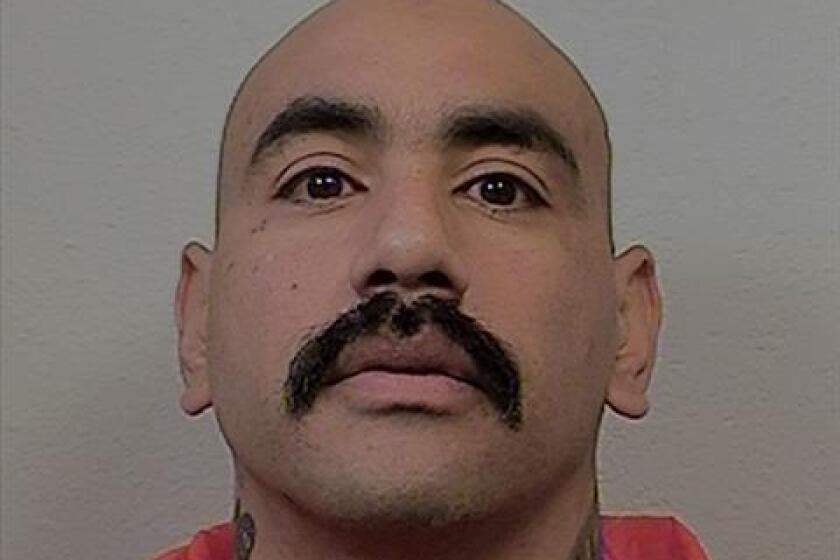CSUN Fires Official Who Made Losing Investments
A Cal State Northridge official blamed by the administration for a $2.27-million investment loss was fired Monday and warned that even if she exercised her legal right to a demotion, she would be ousted for alleged “unprofessional conduct,” her attorney said Wednesday.
The fired official, Karen Hoefel, 47, has worked for CSUN since the early 1970s, most recently as director of finance and logistical support, and is three years shy of receiving substantial retirement benefits.
“They’re pushing her out after 26 years of service to the university,” said attorney Robert L. Risely of Pasadena.
The university has not told Hoefel why she is being dismissed, and Risely said it remains “mostly a mystery” to him.
But in interviews Tuesday, CSUN officials said Hoefel had invested in risky derivatives starting in 1990, investments that were sold at a loss in April.
Although the investments did not violate university policy at the time, CSUN President Blenda Wilson said Hoefel used poor judgment.
In an interview with The Times, Hoefel said the blame for the losses lies with her superiors who, over her objections, sold the mortgage-backed derivative securities at a loss to raise cash.
“They’re out to hang me,” she said, maintaining that she had kept several supervisors apprised of the investments despite the university’s claims that she and her staff had operated without any oversight.
Other CSU universities, such as Sacramento State, decided to hold on to similar securities to avoid losing money.
Hoefel was notified of her dismissal in letters dated Monday--a day before CSUN’s chief spokesman, Bruce Erickson, told The Times that she had been assigned to the CSU chancellor’s office in Long Beach since last February or March.
Erickson and another administration member, campus Controller Robert J. Kiddoo, had not disclosed Hoefel’s dismissal during an extended interview Tuesday about the investment losses. Both would confirm only that Hoefel had been transferred off the CSUN campus shortly after Kiddoo was named interim controller and said they did not know her exact title or job. Erickson said she had been assigned to the chancellor’s office “for an indeterminate time.”
Actually, that assignment ended in September.
Since then, Hoefel has been home collecting vacation pay. Risely said Hoefel was forced to do so after being told by her boss, Art Elbert, CSUN’s vice president of administration and finance, that he had eliminated her job.
That contradicted a letter signed by Elbert before her transfer that promised Hoefel she could come back to CSUN after her stint at the chancellor’s office, according to Risely.
The failure to disclose Hoefel’s dismissal during Tuesday’s interview was not the first time that Erickson and Kiddoo had withheld information from The Times during discussions of CSUN finances.
Last May, after reports in The Times of financial irregularities at CSUN, Kiddoo was asked if the school had recently lost money in junk bonds or other risky investments.
“No, I don’t know anything about it,” Kiddoo said in the May 5 interview. “I would be very surprised if that’s true.”
He said he was still new in the controller’s job, that he was preoccupied by converting the university to a new accounting system, and that if he found out anything he would let the newspaper know.
When asked on Tuesday why he had not disclosed the $2.7 million investment loss at that time, Kiddoo responded that it was because he was queried about junk bonds, not derivatives.
“You asked the wrong question,” he said.
Besides, he added, the campus had no money-losing investments when the question was originally posed because the mortgage-backed derivative securities had been sold a month earlier.
As for Hoefel’s transfer, Kiddoo and Erickson declined to elaborate on Tuesday. On Wednesday, Erickson said he had not deliberately misled The Times.
“Officially, Karen Hoefel is assigned to the chancellor’s office,” Erickson said. “Whether she’s on vacation or at the office, I don’t know.”
The investment losses may not even be at the heart of her dismissal, Risely said. He said that Hoefel and Elbert had clashed before she went on temporary assignment at the chancellor’s office, but that he was unable to provide details.
“There was some personal disagreement that occurred with her and Mr. Elbert,” Risely said.
Risely said Hoefel received two separate termination letters, one from CSUN president Wilson, which terminated her from her last job as director of finance and logistical support.
Wilson also failed to disclose Hoefel’s dismissal when interviewed Tuesday about the investment losses.
Under CSU labor regulations, Hoefel has the right to accept a lower-level job--one her attorney said would pay half of her present salary, which was $84,000 last December.
That led to the second dismissal letter, signed by Elbert. The letter, which vowed to fire Hoefel from the lower post, was “a veiled threat [saying] don’t come back,” Risely said. “It really is gross.”
The next step for Hoefel is an administrative hearing at CSUN and various appeals that must be exhausted before a lawsuit can be filed.
Hill-Holtzman is a Times staff writer and Radha Krishnan Thampi is a special correspondent.
More to Read
Sign up for Essential California
The most important California stories and recommendations in your inbox every morning.
You may occasionally receive promotional content from the Los Angeles Times.









